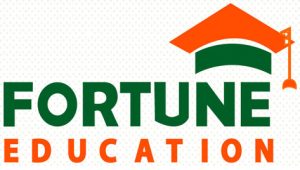MBBS in India, Admission, Fees, NEET Eligibility 2024-25
To pursue MBBS in India, candidates must meet the eligibility criteria and appear for the National Eligibility cum Entrance Test (NEET). Here are the details:
Eligibility Criteria:
- Candidates must have completed 17 years of age as of December 31, 2024.
- They must have passed 10+2 with Physics, Chemistry, Biology/Biotechnology, and English as the main subjects.
- Candidates must have secured at least 50% aggregate marks in the qualifying examination (40% for SC/ST/OBC candidates).
NEET Eligibility Criteria:
- Candidates must be Indian citizens or Overseas Citizens of India (OCI).
- They must have completed 17 years of age as of December 31, 2024.
- There is no upper age limit to appear for NEET 2024.
- Candidates must have passed 10+2 with Physics, Chemistry, Biology/Biotechnology, and English as the main subjects.
They must have secured at least 50% aggregate marks in the qualifying examination (40% for SC/ST/OBC candidates).
Admission Process:
The admission process for MBBS in India is centralized through NEET. The candidates need to appear for the NEET exam, and based on their score, they can apply for admission to various medical colleges in India. The counseling process for admission is conducted by the Medical Counseling Committee (MCC).
Fees:
The fees for MBBS in India vary from college to college. The fees for government colleges are relatively lower than private colleges. The average fees for government colleges range from Rs. 10,000 to Rs. 1 lakh per annum, while the fees for private colleges range from Rs. 5 lakh to Rs. 25 lakh per annum.
MBBS, or Bachelor of Medicine and Bachelor of Surgery, is one of the most popular courses in India. It is a 5.5-year undergraduate program that trains students to become doctors. The course is divided into two parts – the first four and a half years are dedicated to theoretical and practical training, while the remaining year is dedicated to an internship program.
Admission Process:
The admission process for MBBS in India is through the National Eligibility cum Entrance Test (NEET). NEET is a national-level examination conducted by the National Testing Agency (NTA). It is conducted once a year and is the only entrance examination for admission to medical colleges in India.
NEET Eligibility Criteria:
As mentioned earlier, to be eligible for NEET, candidates must have completed 17 years of age as of December 31, 2024. Additionally, candidates must have passed 10+2 with Physics, Chemistry, Biology/Biotechnology, and English as the main subjects. Candidates must have secured at least 50% aggregate marks in the qualifying examination (40% for SC/ST/OBC candidates).
NEET Exam Pattern:
NEET is a computer-based examination. The duration of the exam is three hours. The question paper consists of 180 multiple-choice questions from Physics, Chemistry, and Biology. The exam is conducted in multiple languages, including English, Hindi, and regional languages.
NEET Syllabus:
The NEET syllabus is based on the NCERT syllabus for classes 11 and 12. The syllabus includes topics such as Human Physiology, Plant Physiology, Reproduction, Ecology and Environment, Genetics and Evolution, Cell Structure and Function, Biotechnology, and more.
Counseling Process:
After the NEET results are declared, the Medical Counseling Committee (MCC) conducts the counseling process for admission to various medical colleges in India. The counseling process is conducted in multiple rounds, and candidates are allotted seats based on their NEET scores and choices.
Government Colleges:
The All India Institute of Medical Sciences (AIIMS) is one of the most prestigious medical colleges in India. There are a total of 15 AIIMS colleges in India. The fees for AIIMS are subsidized by the government, and hence, the fees are relatively lower. Other government medical colleges include Maulana Azad Medical College, Delhi; King George’s Medical University, Lucknow; Christian Medical College, Vellore; and more.
Private Colleges:
Private medical colleges have a higher fee structure compared to government colleges. However, private colleges offer better infrastructure and facilities. Some of the top private medical colleges in India include Kasturba Medical College, Manipal; St. John’s Medical College, Bangalore; Christian Medical College, Ludhiana; and more.
Career Opportunities:
After completing MBBS, students can pursue various career options. Some of the popular career options include:
Pursue Postgraduate Courses:
After completing MBBS, students can pursue postgraduate courses such as MD, MS, or PG Diploma in various specializations. Some of the popular specializations include Pediatrics, Obstetrics and Gynecology, Dermatology, Psychiatry, Radiology, and more.
Work in Government Hospitals:
After completing MBBS, students can work in government hospitals. They can work as medical officers or junior doctors. The government provides job security, and the salaries are also decent.
Work in Private Hospitals:
After completing MBBS, students can also work in private hospitals. Private hospitals offer better salaries and better work environments. Students can work as general practitioners or can specialize in various fields such as cardiology, neurology, gastroenterology, and more.
Pursue Research: Students who are interested in research can pursue a career in research. They can work in research institutes, medical colleges, or can even pursue a PhD.
Work Abroad: MBBS graduates can also work abroad. Many countries, such as the USA, Canada, and Australia, require foreign doctors to clear specific exams before they can practice. However, clearing these exams can lead to better job opportunities and higher salaries.
Challenges in Pursuing MBBS: Pursuing MBBS is not easy, and students face various challenges. Some of the common challenges include:
High Competition: There are a limited number of seats available in medical colleges, and hence, the competition is high. Thousands of students appear for NEET every year, and only a few are able to secure a seat in a medical college.
High Fees: Private medical colleges have a high fee structure, and not everyone can afford it. Even the fees for government colleges have increased in recent years, making it difficult for students from economically weaker sections to pursue MBBS.
High Study Load:
MBBS is a tough course, and students need to put in a lot of effort to clear the exams. The course requires a lot of studying and practical training, which can be exhausting.
Long Working Hours:
After completing MBBS, students need to complete a one-year internship program, which requires them to work long hours. They need to be on their feet for extended periods, which can be physically and mentally exhausting.
Conclusion:
MBBS is a highly rewarding course, but it comes with its challenges. Students need to be dedicated and hardworking to clear the exams and become doctors. The government needs to take steps to increase the number of medical colleges and reduce the fees to make MBBS accessible to everyone. Overall, pursuing MBBS is a great option for those who are passionate about medicine and want to make a difference in people’s lives.
Additionally, there are some ethical challenges that students may face during their MBBS journey. As future doctors, they are expected to abide by ethical principles and codes of conduct. However, situations may arise where they may be required to make difficult ethical decisions. For example, they may have to decide whether to disclose confidential patient information to authorities, or whether to perform a procedure that goes against their ethical beliefs.
It is essential for students to be trained in medical ethics and to have a strong moral compass. Medical ethics is an important part of the MBBS curriculum and is aimed at helping students develop the necessary skills to make ethical decisions.
Another challenge that MBBS students may face is the lack of exposure to rural healthcare. The majority of medical colleges are located in urban areas, and hence, students may not get enough exposure to the rural healthcare system. This can be a disadvantage as rural healthcare has its own set of challenges, such as lack of infrastructure, shortage of doctors, and lack of awareness among the people.
To address this issue, some medical colleges have started sending their students to rural areas for a short period. This gives them an opportunity to experience the rural healthcare system first-hand and understand the challenges faced by doctors working in rural areas.
In conclusion, MBBS is a highly respected and rewarding profession. However, it comes with its own set of challenges. Students need to be prepared to face these challenges and work hard to achieve their goals. Medical colleges and the government need to work together to address some of the challenges faced by students and make MBBS accessible to everyone. With the right training, guidance, and support, students can become successful doctors and make a positive impact on society.
Online Direct MBBS Admission
Fortune Education facilitates the online admission process for aspiring students who wish to pursue MBBS (Bachelor of Medicine and Bachelor of Surgery) in renowned medical colleges. Through their platform, students can conveniently apply and secure admission without the need for physical presence.
Pioneer & Leading Authorized Representative of Medical Colleges in Bangladesh & Abroad
Head Office: 23/C, Zigatola, Dhaka-1209, Bangladesh
Bangladesh: +8801995529533
India: +919903355537
Email: fortunebangladesh@gmail.com
Website: www.fortuneedu.org , www.mbbsbd.com


